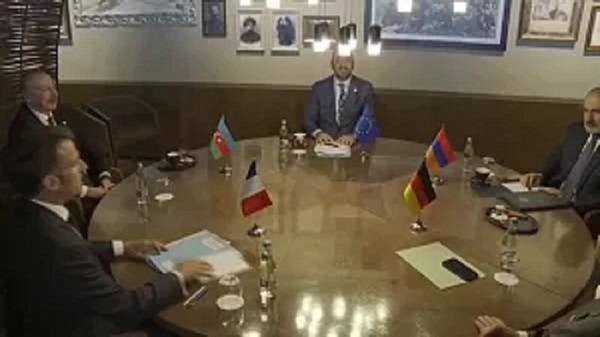
Never in Afghanistan’s difficult history has it experienced such hectic diplomacy in seeking a resolution to an internal conflict, one whose roots go back to that fateful evening in December 1979 when Soviet troops invaded.
Just as the Soviet Union became desperate to withdraw its troops from Afghanistan, today the US is actively searching for a political settlement in order to withdraw its forces. The notion of an internal political settlement in Afghanistan has also attracted China, Russia and Iran.
This turn of events has turned Pakistan into the nucleus of the search for an intra-Afghan settlement, and has triggered cautious hope that 2019 could finally be the year of Afghanistan’s political pacification.
But no one from official circles in Pakistan, Afghanistan or the US can confidently predict a positive outcome from what is becoming an increasingly desperate diplomatic process. Disappointment and despair are becoming all too noticeable.
Under pressure from Washington, if Pakistan succeeds in delivering Afghan Taliban leaders to the negotiation table for a result-oriented dialogue with the US and Afghan governments, it will become the golden child of diplomatic integrity regionally and globally. But if Islamabad fails, the US will doubtless engage once more in its aggressive public denunciation of Pakistan and blame it for the collapse of negotiations.
Three factors hold some hope for a positive outcome to Pakistan’s efforts to promote dialogue between the Afghan Taliban, Kabul and the US. First, Pakistan’s civilian and military leaders are in unison and working together to this end.
Pakistan and friendly Arab states need to continue using all their diplomatic clout to convince the Afghan Taliban that there is no better long-term option left than to seek a political settlement through dialogue.
Dr. Hasan Askari Rizvi
Second, Islamabad is more determined than ever to convince Taliban leaders that meaningful talks are in their best interests, and that they risk losing Pakistan’s hospitality if their position remains inflexible. Similarly, the Afghan Taliban will lose all diplomatic ground with Saudi Arabia, the UAE and Qatar if they persist with their hard-line refusal on talks or agree to negotiate solely on their terms.
Third, the Afghan Taliban and Kabul have realized that they can continue hurting each other militarily, but that neither can achieve a decisive military victory. Such a stalemate will prove costly for both sides in terms of material and human losses. In any case, the Afghan Taliban’s complete sweep of the country will never be acceptable to Russia, China, Iran, Pakistan, the US, the Central Asian states and India.
Though the Taliban is playing tough after the first round of talks in Abu Dhabi, its dilemma is that different groups under the Afghan Taliban are not equally keen on talks. Therefore, their leadership is putting forward conditions for negotiations, including the release of prisoners and no direct talks with the Afghan government.
Meanwhile, neither the US nor Kabul are willing to commit to anything concrete for a settlement, such as a promise for the complete withdrawal of American troops, and the nature of internal post-settlement political arrangements. Kabul would hope to preserve some of the liberal political and social norms cultivated during the last decade, but for the Taliban these are an abhorrence.
The current convergence of interests between Pakistan and the US on resolving the Afghan crisis has almost entirely excluded India from the diplomatic loop. New Delhi tried to make some inroads by holding the first ever ministerial-level India-Central Asia dialogue in mid-January, in which Kabul took part, but by and large Pakistan has made it clear that India has no role to play in the current diplomatic process.
There is, however, a chance that India could use its diplomatic clout with the Afghan government and convince it to play tough during the dialogue process so that the Pakistan-led initiative collapses. Apart from this, the limitations of geography make it difficult for India to attempt alternative damage.
Kabul’s participation may not occur until the Taliban and the US achieve some concrete successes on issues of security and politics. At this time, Pakistan and friendly Arab states need to continue using all their diplomatic clout to convince the Afghan Taliban that there is no better long-term option left than to seek a political settlement through dialogue. But as the events of the last few months have revealed, this will be a slow and non-linear peace process.
Dr. Hasan Askari Rizvi is a Pakistan-based political analyst. Twitter: @har132har
Disclaimer: Views expressed by writers in this section are their own and do not necessarily reflect Arab News" point-of-view












